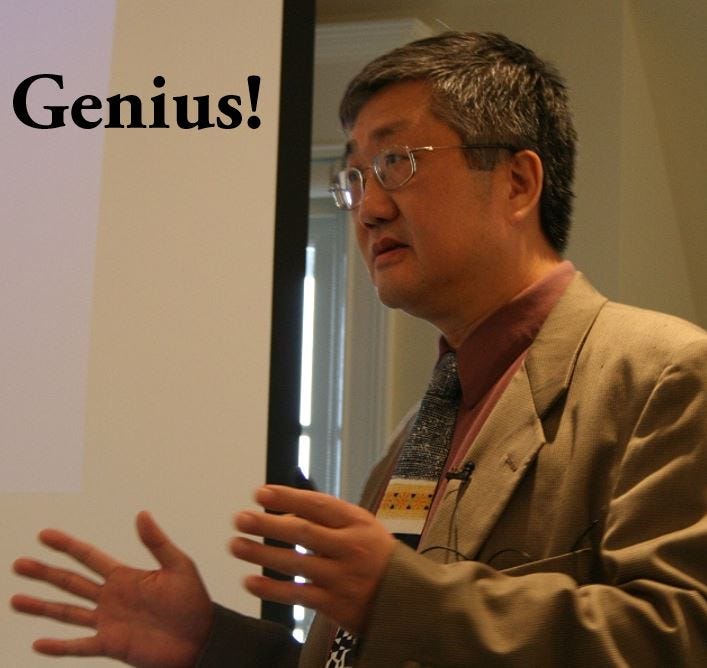Genius!
Those Scottys who always get overruled by the bosses who want to ‘explore new worlds’, no matter how many warnings of catastrophe they give them. — ‘An Einganeer’s Tale’, page 14
To model toxicity, I came up with a new kind of recursion that I called Adherent Recursion (AR). I called it Adherent because it mathematically stuck to the EPA’s screwy equations …Folks were still coming up with more things that could be done with DR and AR and how to do it all faster, but my work there was pretty much done. — ‘An Einganeer’s Tale’, pages 69 & 70
I’ve had the privilege of working with many very smart people during my career. But only one who I would classify as a true genius, my colleague and friend, Dr. Richard (Lun) Tan. Together we developed techniques that would revolutionized refinery modeling.
Richard was a scientist with a doctorate in physics from Louisiana State University. I, a meager engineer who squeaked out a BS degree from a much less acclaimed school in Washington state. Yet, together we made a great team. For several years we were the Houston office of our company.
I would describe solutions to various problems in terms of constraints, variables, and relationships — the factors at the heart of our technology, LP (Linear Programming). The proprietary programming language we worked in was developed by and for engineers, to provide solutions to problems using only these factors, factors an engineer could readily understand and define in the field.
To Richard, our special programming language was like child’s play. He easily mastered it and would quickly write the code necessary to solve each problem. Afterwards, the scientist in him would take over. He could not accept a solution until it was proven through mathematics. So he would do the math, and develop the equations to show that what we had developed was indeed the solution. Once he was able to see solutions in equation form, he was able to extend them and apply them elsewhere to solve other problems.
Richard had a heavy Chinese accent that sometimes made it difficult for him to get across his thoughts. We would often talk through problems by having these intense brain sessions that would leave me physically and mentally exhausted, and us both frustrated. Often, our sessions would end with neither of us really understanding what the other was saying. Richard’s answer to this was often “Well, I’ll just do it.” A few days later, he would present me with a programming miracle.
Eventually, “Scottys” like me, with that natural engineering skepticism, and many others, developed a kind of faith in him. If Richard said it was right, you believed him, regardless of whether you understood what he was saying.
I’m not sure why he agreed to come work for our small computer company. Perhaps his communication skills and Chinese origins limited his opportunities. But our company and clients were fortunate that he had. And I am fortunate to have had a partner and friend to share thoughts with, that few others could understand.
Sad Fact: Richard passed away from heart failure, last Friday. He was 62. Richard had one vice, cigarettes. Although he tried to give them up numerous times, I don’t think he ever did. Even geniuses fall victim to the weaknesses of mortal man.


